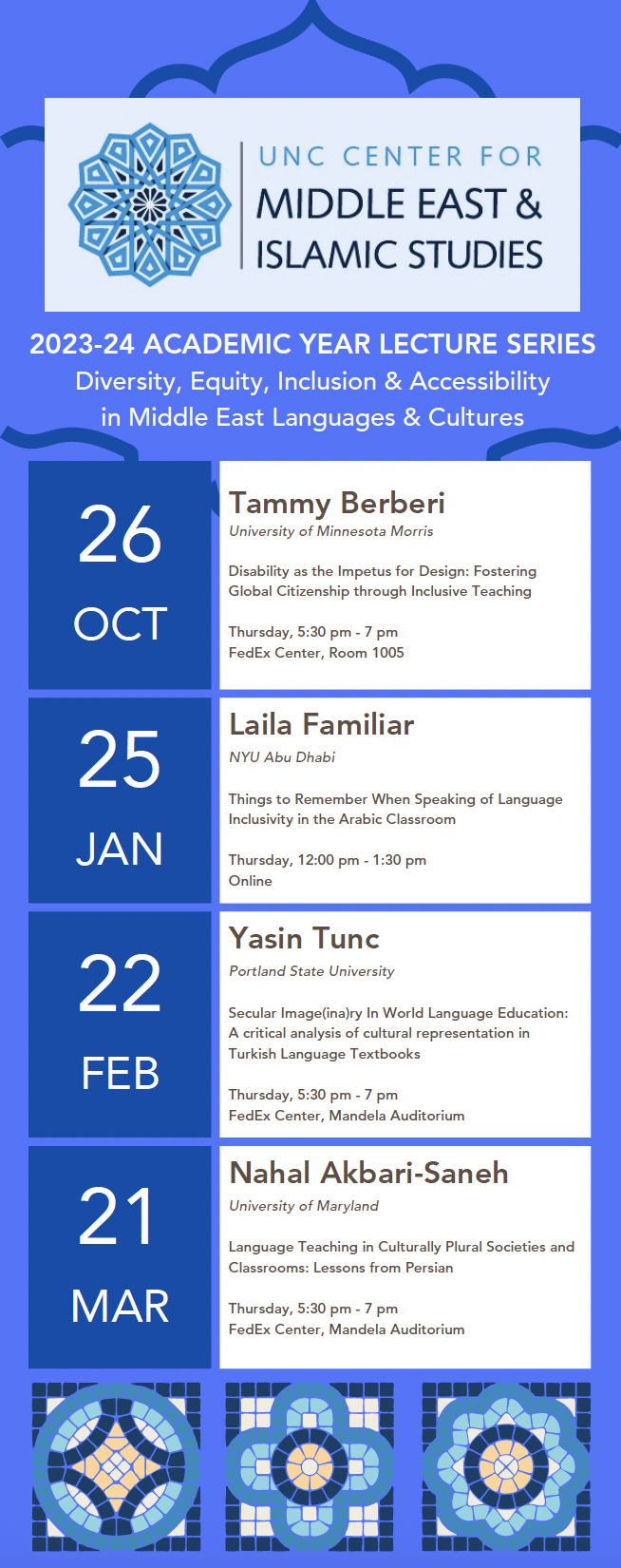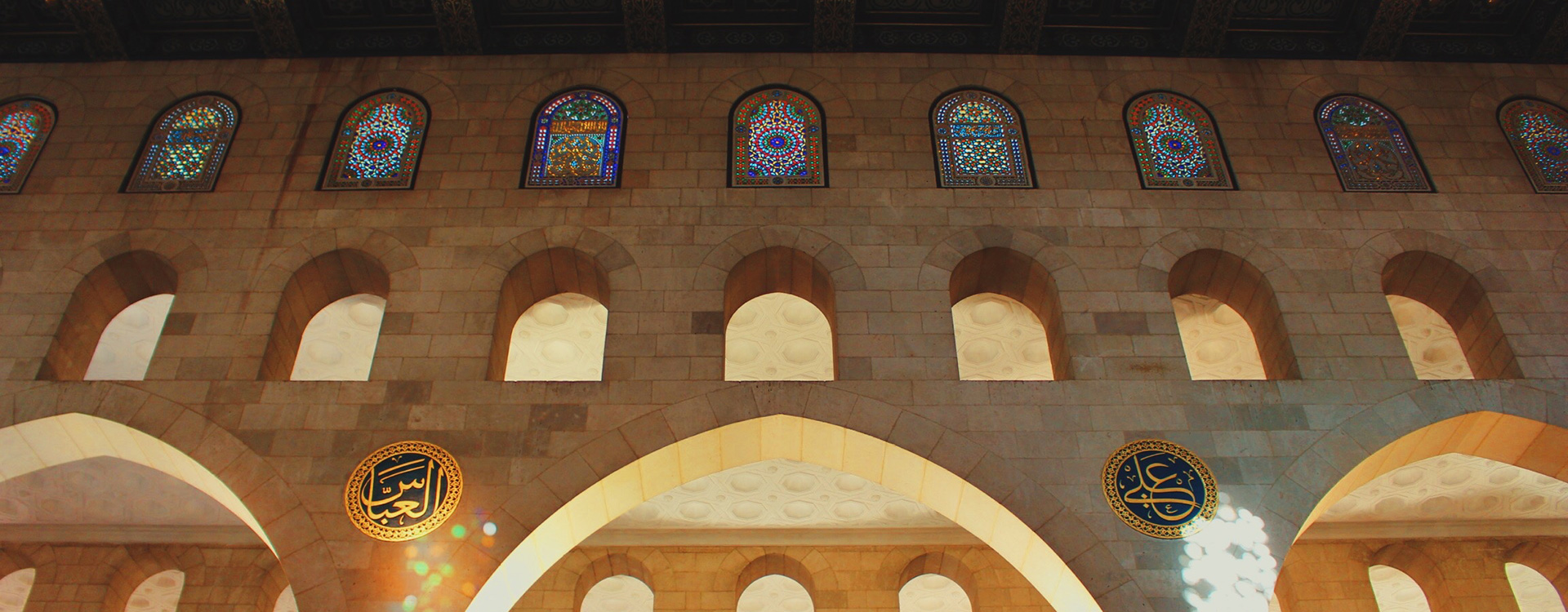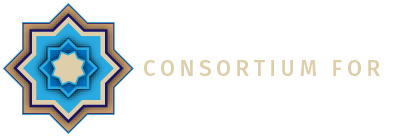These lecture series are designed to create a campus-wide conversation, and an opportunity to interact with leading scholars in the field who are nationally and internationally renowned. The lecture series allows students to network with the guest speakers who are often invited to partake in classroom visits in addition to their public lectures. This opportunity provides them with an extraordinary exposure they need to solidify their next steps in their academic career and to meet the people who will help get them there.
2023-2024 Lecture Series
“Diversity, Equity, Inclusion and Accessibility In The Language Classroom”
Arabic, Persian, Hebrew, Turkish and Hindi/Urdu all face similar challenges when considering implementing Diversity, Equity, Inclusion & Accessibility (DEIA) practices into the linguistic and cultural framework of curricula. Challenges including…
- Some of these languages are historically gendered, not allowing space for non-binary or gender fluid students to find their personal identity in the language.
- Each language has its own set of widely used curricula, textbooks and resources that primarily reflect powerful and privileged voices from the Middle East and Islamic worlds, leading to a narrow student understanding of the diversity of dialect and communication style.
- Many of the widely used curricula either are not up to date in reflecting evolving societies and relevant social justice movements currently unfolding, or they offer colonized points of view on historical events.
This lecture series aims to first reach educators and support them in expanding their DEIA practices in the language classroom, knowing that will positively impact students as a result. The Center for Middle East and Islamic studies also intends to collaborate with UNC global language faculty for lunch & learns to explore and improve DEIA practices in all language instruction across campus. The specific goals of the lecture series are to…
- Gather information from expert educators in the Arabic, Persian, Hebrew, Turkish and Hindi/Urdu teaching fields and work towards the standardization of this knowledge and inclusion of this language in the classroom.
- Identify the privileging of certain voices and explore more holistic, multilingual and multi-dialectal approaches for a diverse and inclusive language learning experience.
- Explore what social justice language is needed to reach students from beginner to advanced levels of the language and consider topics that will engage and encourage critical consideration of such topics
- Engage with global language faculty across campus through lunch & learns to improve DEIA practices in languages across campus.

Past Lecture Series
2022-2023 “Legacies Of Middle East’s Global 20th Century: Moments Of Worldmaking And Worldbreaking”
UNC-Chapel Hill Center for Middle East and Islamic Studies hosted six public lectures on the significance of twentieth-century Middle Eastern and Muslim experience in the formation of the contemporary world order. Six leading scholars of the modern global history shared their research findings on transformative moments and processes of the previous century in the Middle East and Muslim Societies across Asia to make sense of their impact on our contemporary times. Read more about this lectures series in the 2023 annual newsletter.


